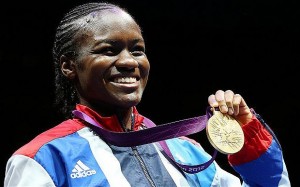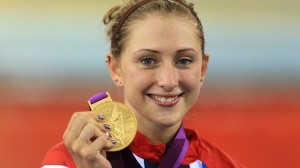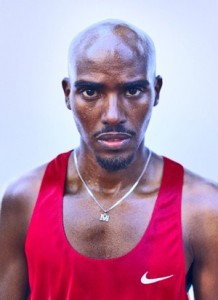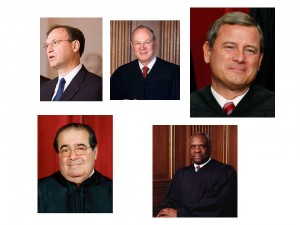
Any foreigner in Britain in 2012 must think the country was going through another world war. The amount of jingoism, flag-waving, anthem singing and hyperbole spilling out of the national media has gone into overdrive, suddenly proclaiming this country to be the ‘greatest country ever’, a claim that hasn’t been exercised with such arrogant emphasis for the best part of a century. The key to this whole campaign is the London Olympics, a wholly inappropriate and unnecessary strain on both national economy and society, in technical and realistic terms.
It remains mystifying why the IOC awarded London the games of the 30th Olympiad in the first place. The choices for 2012 – London, Paris, New York, Madrid, Moscow – seem frustratingly unexciting, but certainly at least the other four cities would’ve made a more interesting prospect. But they ended up with London, carried through with a cynical ‘Why not?’ approach, and ever since, until July 2011, there was never any sense of pride or enthusiasm in Britain for hosting it. Indeed, even we at home were a bit confused as to why they should tear up the East End of London for a two-week-long sporting contest that our country is notoriously ignorant of. When Beijing 2008 ended, and the Olympic flag/flame/whatever was handed to Boris Johnson – a stupidly laughable and populist celebrity politician here in Britain – the attitude was one of apathy and disinterest. “It’s four years away, so what?”
Then, last July, the BBC, and eventually the media in general, began a countdown to when the Olympics were to begin. Months passed and nothing changed. Touted as a ‘warm up’, the massively pointless ‘celebration’ of Elizabeth Windsor (doing nothing for 60 years), which cost the equivalent of a whole third of the Olympics, merely brainwashed the majority of the population to hang the Butcher’s Apron (i.e. the Union Flag) in their houses and wear it on at least one piece of clothing. It took the opening ceremony itself to convince people that, for better or for worse, we really were hosting the world’s most pretigious sporting competition, and, actually, it kinda looked fun.

The tabloids began moaning on day one that no ‘Team GB’ athlete had won gold yet (if someone had won a silver or bronze they would’ve been totally ignored, and even vilified by the more right-wing and jingoistic press for ‘not doing good enough’). But, amazingly enough, the people themselves didn’t care. In an astonishingly quick space of time an obsessive curiosity had attracted the attention of a large portion of the populace, with the BBC’s excellent, endless coverage being the new wallpaper for millions of tv screens. Every sport and every participating nation was being watched. People made surprising efforts to try to understand the rules of Judo and gymnastics. And when British athletes began winning medals, both gold and otherwise, a wonderful, genuinely inspiring phenomenon began to appear that, sadly, has not since been celebrated in conjunction with the games themselves.
This was the Women’s Olympiad. From every nation sending both male and female athletes for the first time, to another first with women being able to compete in every sport, to Britain’s first medal being won by a woman (silver in women’s cycling road race by Lizzie Armitstead) to Britain’s first gold being won by women (Helen Glover and Heather Stanning in women’s coxless pair rowing), it was the strength, power and gloriously triumphant smiles of female athletes that defined the London games. Everywhere there seemed to be moments of incredible achievement: Cuba’s Idalys Ortiz became the first woman to win gold in Judo who wasn’t from either China or Japan; 16-year-old Gabby Douglas from the USA became the greatest gymnast in the world by winning two golds, including in the all-round event; Mariana Pajon’s gold in the women’s BMX was only the second ever for Colombia at any Olympics; 800m runner Sarah Attar and Judoka Wojdan Shahrkhani represented in their respective sports Saudi Arabia, a nation infamous for its overt hatred of women; and the women’s badminton teams from China, South Korea and Indonesia proved that women even stood out in matters of controversy as all of those athletes were disqualified for trying to cheat in their matches.
And it was an (extremely rare) emotional effort for the British women. Kathy Copeland and Sophie Hosking stared in disbelief seemingly forever after winning the women’s lightweight double sculls; Danni King, Joanna Rowsell and Laura Trott smashed the world record in the women’s team pursuit cycling, with Laura winning another gold on her own in the omnium three days later; Nicola Adams, a black working class girl from the economically devastated North of England, became the first ever women’s boxing champion; Wales’ own Jade Jones came from nowhere to storm the women’s Taekwondo title; and Vicky Pendleton stepped up alongside Chris Hoy as one of Britain’s greatest ever cyclists after winning a gold and silver in individual events. Becky Adlington and Christine Ohuruogu returned medals in the events that had made them champions, and stole our hearts, in 2008, whilst the gorgeous Beth Tweddle finally claimed a medal (bronze in uneven bars) in her final Olympic competition, a fantastic affirmation of Britain’s best gymnast.

But, undoubtedly, the finest moment, for us, for the whole Olympics was Jessica Ennis winning her last heptathlon even (800m) and finishing miles ahead of her nearest challenger to become the world’s best all-round female athlete. Like Adams, Ennis is from the North of England, and has been forced into the media’s Olympic campaign to be ‘the face of the games’. Her beautiful face and body adorning millions of bilboards, posters, magazine covers and advertisements, as soon as she took her first sprint in the 100m hurdles and easily broke the world record no one had any doubt she would make the whole country fall in love with her. Her assured and powerful accomplishment could not be further from the English soccer team’s typically pathetic and unconvincing failure in the Euro 2012 football tournament earlier in July; these ludicrously overpaid and talentless neanderthals are regularly held up as role models and champions by the media only to fall hard on their faces. Jessica Ennis won gold without breaking a sweat, and naturally exudes more charm and loveability than any male athlete could even dream of.
Though, of course, the British men did exceedingly well too, with stand outs such as Tour de France winner Bradley Wiggins (which has to be one of the most stereotypically ‘British’ names ever) taking gold in the time trial, Northern lads Luke Campbell and Alistair Brownlee winning at boxing and triathlon respectively, the rest of the men’s rowing and cycling teams – British Olympic specialities – performing strongly, and London boy Mo Farah cruising to victory in the 10,000 and 5,000m. Mo Farah in particular, a Somali immigrant and Muslim, who offered prayers as he crossed the finish lines, left both the right-wing press and the conservative undercurrent in Britain in general utterly silent as he draped himself in the country’s flag and proudly claimed his medals mattered as much as any other athlete, with 99% of the British public immediately standing strong right beside him. That the more racist parts of the media implied Farah was not ‘British’ because he was an immigrant (i.e. he has black skin and is Muslim), while accepting Wiggins as British because, even though he was born in Belgium, he has white skin and isn’t Muslim, shows that Britain faces just as much childish immaturity and narrow-mindedness as every other Western nation.

The less said about the opening and closing ceremonies the better. Neither of these pretentious, deeply embarrassing follies presented more than an ignorant tourist-eye-view of Britain, showcasing the worst in modern British music (Jessie J, Emeli Sande ad nauseum), scraping the barrel by having bands from half a century ago (those members still alive anyway) sing songs about youth and rebellion, and washed-up right-wing ex-athlete Lord Seb Sir Sebastian Coe, or whatever meaningless ‘titles’ he has, deliver pointless speeches about Britain ‘doing it right’ (though not ‘great’, because to have ambition in Britain is to have your soul violently trampled on and your dreams ripped apart by hopeless reality). But some genuine creativity and brilliance did manage to permeate even those ridiculous novelty parades, such as Kate Bush’s epic ‘Running Up That Hill’ thrumming through the stadium and John Lennon’s face appearing during ‘Imagine’ providing a extraordinary tear-inducing moment of quiet, intelligent power. Ultimately, both ceremonies were upstaged by the 10-minute ‘preview’ of the Rio games, which contained more artistry, colour, joy, sex and sheer awesomeness than anything cobbled together by British government-approved ‘artistic directors’, though not including Danny Boyle, who obviously had next to no input in the ceremonies whatsoever.

And now the whole thing’s finished, with the appalling discrimination by all involved in full force in promoting those two weeks as more worth while of time, money, coverage and attention than the Paralympics in a few day’s time. But was the most fun that has come to our country in living memory, which is saying a lot considering what kind of country this is. We don’t do ‘fun’, and every major event that happens is always polarising and usually a pointless waste of money. But London 2012 wasn’t. Despite it promoting the newest and richest parts of the capital as endemic of the country as a whole – nothing of the North of England, Wales or Scotland appeared anywhere during the games outside of the athlete’s accents – everyone felt an honest sense of pride and support for those incredible men and women who won medals and thanked their friends, families and home towns, which was the rest of us.
We’ll probably always have a little trace of this feel-good factor left with us, reawoken and strengthened by the Paralympics, and enshrined in wonderful memory. There are a lot of bad things that have happened because of the Olympics, but they are more to do with the general social, political and economic decay and destruction wrought by this illegal government. The real point of the Olympics, of the Women’s Olympiad, is that it was one fucking fantastic competition, and we loved it.
This Year's Olympics,



